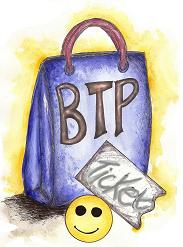There are armies of very smart, very well educated, numbers- and facts-focused people on Wall Street and in other stock exchanges around the globe. The sharpest minds from the best schools compete at the highest levels for any advantage at all in their quest to find and exploit high-return investment opportunities and to avoid squandering capital. So, you might reasonably expect that these would be pretty rational folks. Their decisions should be driven by data, by theory where applicable, by history and their understanding of the market and the other players in it — by prospects for the future.
To a great extent, that may be true. However, in many respects, the high-flyers on the trading floors throughout the world are just like the rest of us. Sometimes they are happy. Sometimes they are not. So, researchers wanted to understand whether traders’ happiness affects how they and the market perform.
There were compelling reasons to believe that happiness might impact performance. For instance, when we are happy we tend to see the world through rose-colored glasses. Our happiness makes everything look a little better, more positive. We also tend to take a simpler view of the world. Rather than analyzing everything, when we are happy we tend to evaluate based on more emotional, less critical criteria: we might ask how something feels rather than whether it is an ideal fit. Also, when we are in a good mood, we tend to notice and pay attention to things that are consistent with our good mood, even at the expense of less positive but equally important information. We are more optimistic.
In previous posts, we have talked about findings that suggest that when it comes to many consumer decisions, it really is the quick emotional evaluation that is the best one, rather than the long, drawn-out intellectual debate we often find ourselves engaged in. When we buy what feels good, we are usually happier with it than when we tick off the list of features, do our sums and buy the thing that will maximize our intended utility.
But is it wise to simplify decision-making when it comes to trading stock? Should the person who manages your mutual funds make different decisions simply because they feel more like whistling a happy tune? Perhaps not. When we are in a bad mood, we tend to be more analytical and think more critically, and isn’t that what all those expensive MBAs are paid to be and do? So, if they were humming zippidy-dooda all the time, might they not fail to analyze as they should?
Two researchers, David Hirshliefer and Tyler Shumway, undertook an extensive study to try to answer the question of how trader mood affects stock exchanges, if at all. But the researchers didn’t have mood data for traders all over the world. To answer their question, they needed a proxy for mood. As it turns out, there is a very good one — the weather. When it is sunny, we are happier — our moods are more positive.
So, Hirshliefer and Shumway gathered weather and stock exchange performance data from exchanges in 26 countries covering a span of 15 years. The weather data could tell them whether it was sunny, cloudy, or whether there was inclement weather — rain or snow. Trading data could tell them how the stock exchanges performed on days that were either sunny or cloudy.

Gordon Gecko famously pronounced, Greed is good! Might he have felt a little differently when the sun was shining on his shoulders?
And sure enough, around the globe stock exchanges performed better on sunny (happy) as opposed to cloudy (gloomy) days. The differences were not large, but they were statistically significant. Sunny days bring good financial weather.
Of course, it could be that some of those cloudy days were really days on which there was bad weather — typhoons, blizzards, hurricanes, and the like. Such storms might contribute to lower performance, because such events can have devastating effects in the real world. To control for that, researchers eliminated days with rain or snow from their records and re-ran the analysis. What they found was the same thing. Even when the only difference is simply amount of sunshine, stock prices climb on sunny days and drop on cloudy days.
At BtP, we often talk about how the way we relate to our money can affect our happiness. Here, we have seen that highly paid, highly analytical stock traders behave differently due to the weather. In a forthcoming post, we will look at how the weather affects those of us who are normal consumers.
This blog post was written by Kerry Cunningham. Follow @kerryfc
At BeyondThePurchase.Org we are researching the connection between people’s spending habits, happiness, and values. To learn about your spending habits, what influences your buying behavior, and how you define the good life, first Login or Register with Beyond The Purchase, then take our Materialistic Values Scale, our Consumer Susceptibility to Interpersonal Influence Scale, and our Beliefs about Well-being. We think you may learn a lot about what causes you to part with your hard-earned money.
The research referenced above is based on the following research: Hirshleifer, David A. and Shumway, Tyler, Good Day Sunshine: Stock Returns and the Weather. Journal of Finance, Vol. 58, pp. 1009-1032, June 2003.


